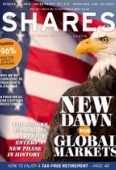Archived article
Please note that tax, investment, pension and ISA rules can change and the information and any views contained in this article may now be inaccurate.
Caveat emptor for market traders

We are in a moment in time where the macro view is important when crafting trading strategies.
Britain is a prime example. The UK stock market took a while to regain its poise after the Brexit vote but it eventually started to move back up. The currency market, which sold sterling hard on the referendum outcome, stabilised but the move hasn’t materially reversed.
In the gilt market, traders have decided that Brexit means the UK Government has to pay a little bit more for money in the longer end, despite the fact the Bank of England has cut interest rates to just 0.25% and expanded quantitative easing.
A lower sterling has boosted the prospects for FTSE 100 stocks, given that many of the index constituents have significant overseas earnings. Picking winners in the FTSE 250 has needed more thought due to a large proportion being UK domestic companies.
Without Brexit, the Bank of England would not have adopted the policy settings that have arguably underpinned the equity market rally. Having done so, and even though Brexit will happen, those very policy settings might soon be inappropriate.
The weaker pound will mean the UK pulls in imported inflation. The Bank of England has already recognized this in its own forecasts. The NIESR think-tank expects UK inflation to hit 4% in the second half of 2017.
Would 4% inflation sit with a 0.25% base rate? It hardly seems credible, let alone sustainable. Maybe the currency and gilt markets have understood that situation?
Even though the Bank of England did what it should have done after the Brexit vote, stock market investors might start to wonder if the equity glass is becoming half empty and not half full.
It’s worth recalling the words of Citibank’s then-CEO, Chuck Prince, back in July 2007 speaking about the US mortgage market. ‘As long as the music is playing, you’ve got to get up and dance. We’re still dancing’ he said.
Prince hadn’t realised it but the tune that was playing was actually ‘The Last Waltz’ and he quit in November 2007 due to the failing mortgage industry.
Caveat emptor could be good maxim for stock market investors. That may be even more applicable when the equity market seems to be dancing to a different tune than that of currency and gilt markets.
Neal Kimberley, External Currency Analyst, ActivTrades
Important information:
These articles are provided by Shares magazine which is published by AJ Bell Media, a part of AJ Bell. Shares is not written by AJ Bell.
Shares is provided for your general information and use and is not a personal recommendation to invest. It is not intended to be relied upon by you in making or not making any investment decisions. The investments referred to in these articles will not be suitable for all investors. If in doubt please seek appropriate independent financial advice.
Investors acting on the information in these articles do so at their own risk and AJ Bell Media and its staff do not accept liability for losses suffered by investors as a result of their investment decisions.

 magazine
magazine








